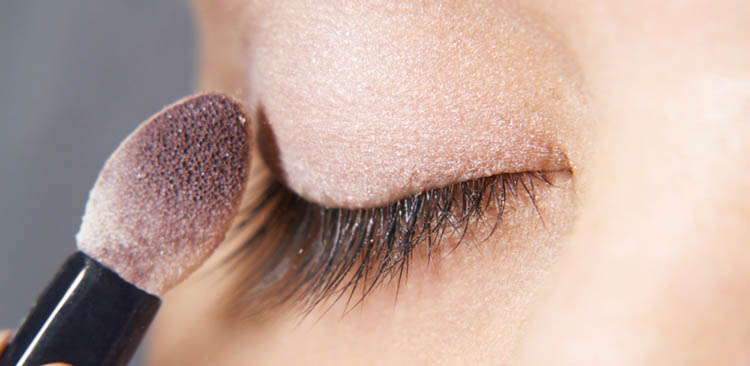If you’re worried about symptoms that only happen when you break out the mascara or put on some eye shadow, read about these five common signs of allergies:
1. Rashes. Red rashes may appear around your eyes and on your eyelids after applying makeup. You may feel an itching sensation associated with these areas, and it may not occur every time you use a product. This issue can develop over time with repeated exposure. This symptom is associated with irritants rather than a true allergic reaction.
2. Swollen eyes. If your eyes start swelling, your immune system may be reacting to one or more components in the cosmetic. You may experience this symptom alongside others, or it could be the only indication that you’re having a problem.
3. Burning sensation. Facial cleansers and other high-acid cosmetics can irritate and even burn your eyes or sensitive skin. Watch out for anything that creates this feeling, so you can avoid longer-lasting damage.
4. Excessive tearing.
5. Hives, often accompanied by a rash, are another skin reaction that you might experience in the event of an allergic reaction.

What Can You Do If You’re Allergic to Eye Makeup?
You never want to find out that your favorite eye makeup is causing you pain. The first course of action is to wash your face to stop the current reaction. Many eye makeup styles require multiple products to achieve a look, so it may take some trial and error to figure out which one is the problem.
Once you establish the product at fault, look through the ingredients list. Preservatives, fragrances and acids are common components that could produce irritation or allergic reactions. Thoroughly clean any makeup brushes or applicators that have been exposed to that cosmetic, so you don’t continue to irritate your eyes.
Your doctor may recommend using eye drops or an antihistamine to manage the symptoms. Make sure you consult with your physician before adding medication into the mix.
Go shopping for a replacement that limits the number of ingredients in the formula. Fragrance-free options eliminate one potential source of irritation, and many brands offer hypoallergenic products.
Be careful with your new makeup. Try a small amount of it near your eyes and be ready to remove it at the first sign of any reaction. Slowly work it into your typical makeup routine a bit at a time, so you don’t run the risk of a widespread reaction. Some brands may be more irritating to your body in general, most likely due to their standard formula components or cross-contamination at the factory.
If you continue to run into issues or your symptoms get worse, reach out to your doctor or a dermatologist to look into other treatment options. You don’t have to give up fabulous eye shadow and long-lash mascara, but you may need some help in figuring out a combination and a treatment plan that works for your body’s unique needs.